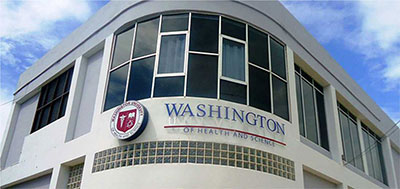Ningbo University
| Fees Structure |
Ningbo University is a dynamic, young and comprehensive university with a wide range of disciplines: economics, law, education, liberal arts, history, science, engineering, agronomy, medicine and management. It is one of the key institutions of higher learning of Zhejiang Province. Deng Xiaoping autographed the name of Ningbo University. Throughout its establishment and development, the University has been upheld by considerable donations and generous support from patriotic overseas Chinese such as Sir Yue-kong Pao, Sir Run-run Shaw, Sir Chao An Chung, Sir Hans Tang, Sir Yue-shu Pao, Sir Cao Guangbiao, Sir Li Dashan, Sir Zhu Xiushan, as well as from personages of various circles in the country. Mr. Cheng Gang, a standing member of Ningbo Municipal Committee of CPC, is concurrently Secretary of the Ningbo University Committee of CPC. Professor Nie Qiuhua holds the presidency of the university.
The University is located in the historical and cultural city of Ningbo of Zhejiang Province, bordering on the East China Sea. Ningbo has long been acclaimed as a thriving commercial port and a shining pearl near the East Sea, and it has gradually grown to be a major city in the Southern part of the Yangtze Delta and a key trading port in the East China. The University has five campuses, covering an area of over 160 hectares, with a floor space totaling 560,000 square meters. The main campus, adjacent to Ningzhen Road in the north and Yongjiang River in the south, offers wide space for study and research with magnificent buildings and pleasant lawns and greenery.
The University supplies a complete set of facilities and services for teaching, and research. Its libraries now have a CNKI Network Administrative Service Center, and a collection of approximately 1,400,000 books. The university consisting of 19 faculties and colleges offers 65 bachelor programs and 56 master rograms. The number of its full-time undergraduate students amounts to 23,000 with 700 in-residency postgraduates. The number of the teaching and administrative staff reaches 2,400 of which 1300 are teachers, with 6 academicians, 188 full professors and 581 associate professors.
Ningbo University ranks among the first group of universities of China to enroll students from China's mainland and Hong Kong, Taiwan and Macao. It offers mainly undergraduate programs, and simultaneously it makes vigorous efforts to expand graduate programs, and also offers doctoral degrees in cooperation with other universities. Pursuing the tradition of "seeking truth from facts and applying knowledge to the service of the nation" as its mission, the university aims to carry out systems of credits, combination of major subjects with minor subjects and flexible study programs, and to implement the course structure with the first block of general education and the second block of specialty study, to bring about quality students with broad adaptability, good knowledge, and strong capacity.
The university is featured by its emphasis on the development of academic disciplines. Centering on the local economic and social development, the university has adjusted and optimized the structure of disciplines, and this has resulted in its 13 provincial key academic disciplines and key assisted academic disciplines, 11 municipal key academic disciplines and key assisted academic disciplines, which bear distinct regional characteristics. The university has also made great advancements in scientific studies and social services. It has 2 provincial key laboratories, 12 municipal key laboratories, and 77 institutes. It has jointly established, with the local enterprises, 3 provincial and municipal engineering and technology centers. The academic periodical of the university is the Journal of Ningbo University, which consists of editions of Natural Science and Engineering, Liberal Arts, and Education.
Ningbo University maintains close links and intercollegiate cooperation with 47 well-known institutions of higher learning in Canada, Germany, France, Britain, USA, Sweden, Japan, South Korea and Australia. The success of the international exchanges can be exemplified by its successful China-Canada joint-educational program and its other programs for international students from Japan and other foreign countries. It also has successful cooperation and exchanges with institutions of higher learning and educational agencies in Hong Kong and Taiwan. Up to now it has signed cooperative agreements with The Chinese Culture University of Taiwan, Chaoyang University of Technology, Chihlee Institute of Commerce, and Taiwan Marine University, etc.
Facing the great historical opportunity of developing higher education, Ningbo University, based on Ningbo and serving Zhejiang, is laying greater emphasis on improving its quality, raising its level, and heightening its status. The University is now endeavoring to become a well-known university with both educational and academic excellence, not only closely linked with the local economic and social development and satisfying the demands of the age, but also contributing more to the economic prosperity and social development of Zhejiang and the country as a whole.








